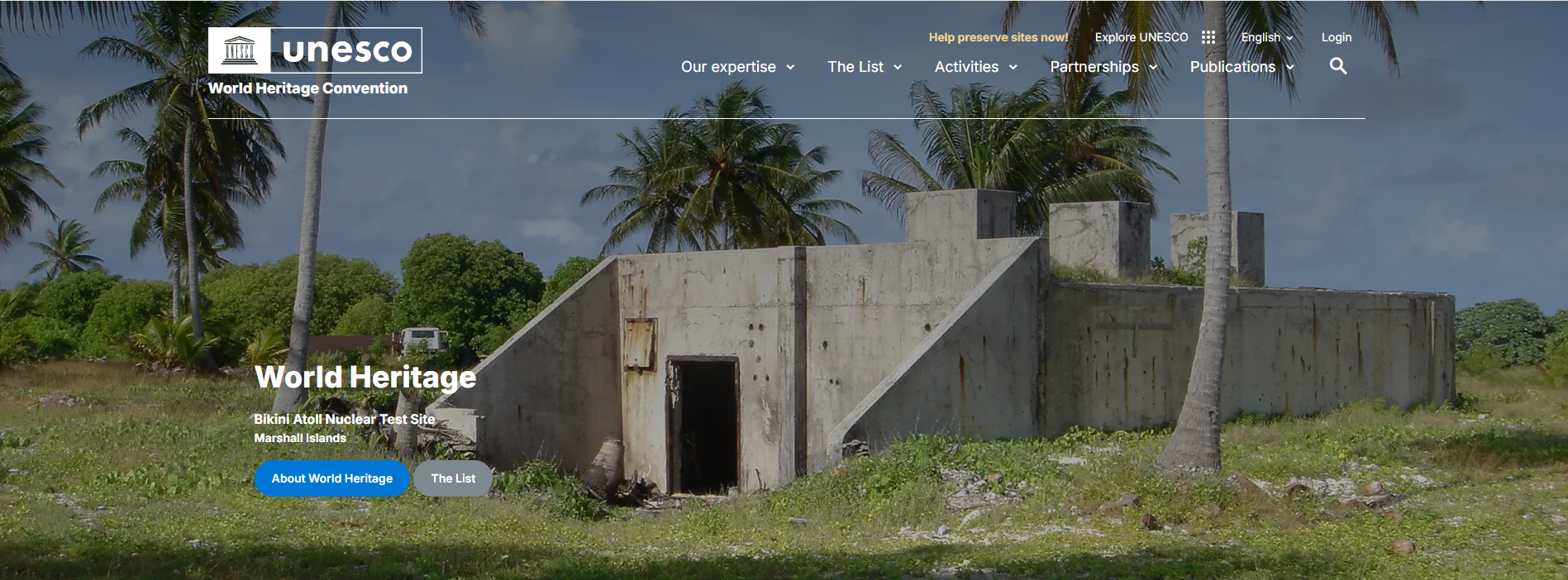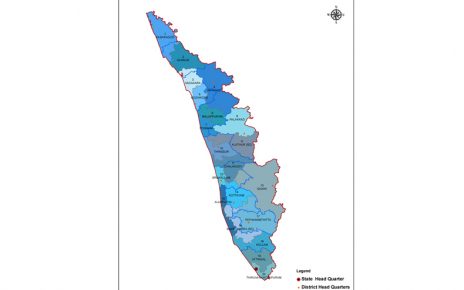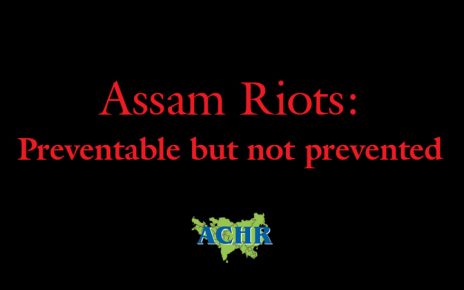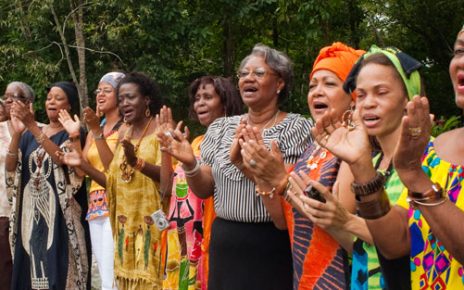As the UNESCO’s 47th Session of the World Heritage Committee takes place in Paris till 16 July 2025, the betrayal of indigenous peoples living in the World Heritage sites of the UNESCO, where they often become victims of forced evictions, torture, extrajudicial executions, sexual violence etc, has come to the fore.
I. UNESCO BLOCKING THE OUTCOME DOCUMENT OF THE EXPERTS:
To address the concerns and perspectives of indigenous peoples, the UNESCO had organised “Indigenous Peoples Heritage Values Geneva Workshop” in Geneva from 16 to 18 January 2024 and an Outcome Document (as shared with ACHR) was adopted during the meeting. The Outcome Document addressed seven critical issues i.e. (1) refining the interpretation of the concept of Outstanding Universal Value so that it accommodates and is respectful of Indigenous Peoples’ values and perspectives, in consistency with the international community’s commitment to the protection of cultural diversity; (2) making changes to the natural criteria to help overcome the Eurocentric nature-culture divide in the implementation of the World Heritage Convention; (3) ensuring that the implementation of the World Heritage Convention is consistent with a human rights-based approach; (4) ensuring that Indigenous Peoples’ right to free, prior, and informed consent is operationalized in the processes of the World Heritage Convention in a systematic, consistent, and constant manner, in accordance with international standards and obligations; (5) ensuring the direct and meaningful participation of Indigenous Peoples in all World Heritage Convention processes affecting Indigenous Peoples; (6) establishing independent grievance/redress mechanisms at the UNESCO/WHC level to help remedy injustices suffered by Indigenous Peoples in World Heritage sites and World Heritage processes; and (7) developing capacity building programmes to support the effective participation of Indigenous Peoples in World Heritage processes and increase understanding of Indigenous Peoples’ status, rights, and heritage within the World Heritage system.
This Outcome Document was to be submitted to the 46th Session of the World Heritage Congress from 21-31 July 2024.
However, the Outcome Document of the “Indigenous Peoples Heritage Values Geneva Workshop” as adopted by indigenous peoples experts was reportedly not acceptable to the UNESCO’s relevant secretariat. Therefore, it could not be submitted to the 46th Session of the World Heritage Congress held in New Delhi from 21-31 July 2024.
During the 46th session of the World Heritage Committee, the “Report of the World Heritage Centre on its activities and the implementation of the World Heritage Committee’s Decisions” referred to the Outcome Document of the “Indigenous Peoples Heritage Values Geneva Workshop” in the following way:
“46. The purpose of the workshop was to develop recommendations from indigenous experts on measures to enable and support more consistent and appropriate recognition of Indigenous Peoples’ values and relationship with the land in the OUV and management of World Heritage properties, and to facilitate the recognition of culture-nature linkages on inscribed properties. At the time of writing, the outcome document of the workshop is being finalised by a drafting group of indigenous experts appointed by the IIPFWH. It is expected to contain a series of recommendations under seven themes: The refinement of the interpretation of the OUV concept and the evaluation of the criteria, the recognition of the nature/culture interconnectedness and the application of the criteria, the alignment of the World Heritage Convention with the human rights-based approach, the operationalisation of free, prior and informed consent, the participation of indigenous peoples in World Heritage Convention processes that directly affect them, the establishment of independent grievance and redress mechanisms for human rights violations in areas protected under the Convention and the development of capacity-building programmes to support the participation of indigenous peoples in the Convention processes and a better overall understanding of the rights of indigenous peoples. It is hoped that it will provide a basis for defining cooperation, agreeing solutions and working positively and collaboratively between IIPFWH, the Advisory Bodies and the Secretariat together with the Governing Bodies and States Parties to bring about change both at the international level and on the ground”.
At the 46th Session of the World Heritage Committee, indigenous peoples were blamed for not being able to finalise the document which is far from being the truth.
Be that as it may, the “Progress report on the activities concerning the implementation of the World Heritage Convention by the World Heritage-related Category 2 centres” submitted to the 47th Session of the World Heritage Committee makes no reference to the Outcome Document.
It is clear that UNESCO is not keen to protect the rights of the indigenous peoples in its world heritage sites.
The State Parties to the World Heritage Convention at the ongoing 47th Session ought to take note of this monumental failure of the UNESCO Secretariat and take measures to place the Outcome Document of the Indigenous Peoples Heritage Values Geneva Workshop for consideration by the Committee members and all others. The fact that a document, which is not binding upon anybody, cannot be placed for consideration by the State Parties, exposes self-censorship in a UN body and ought not to be countenanced under any circumstances.
The State Parties to the World Heritage Convention at the ongoing 47th Session ought to take note of this monumental failure of the UNESCO Secretariat and take measures to place the Outcome Document of the Indigenous Peoples Heritage Values Geneva Workshop for consideration by the Committee members and all others. The fact that a document, which is not binding upon anybody, cannot be placed for consideration by the State Parties, exposes self-censorship in a UN body and ought not to be countenanced under any circumstances.
II. BACKGROUND ON UNESCO’S FAILURES ON INDIGENOUS PEOPLES
In 1972, UNESCO adopted the World Heritage Convention providing for preservation of “natural heritage”. Article 2 defined “natural heritage” as “natural features consisting of physical and biological formations or groups of such formations, which are of outstanding universal value from the aesthetic or scientific point of view; geological and physiographical formations and precisely delineated areas which constitute the habitat of threatened species of animals and plants of outstanding universal value from the point of view of science or conservation; natural sites or precisely delineated natural areas of outstanding universal value from the point of view of science, conservation or natural beauty”.
There is no reference to the rights of the people, majority of whom are indigenous peoples, residing in natural heritage sites. As on date, UNESCO has notified over 250 natural sites across more than 100 countries covering 3,500,000 square km which account for around 8% of the total surface covered by all 280,000+ terrestrial and marine protected areas worldwide.
Indigenous peoples reside in overwhelming and most prominent natural heritage sites around the world whether the Kaziranga National Park in India or Ngorongoro Conservation Area in Tanzania. The establishment and management of protected areas worldwide has often resulted in displacement of indigenous peoples from their traditional lands and resources, forced evictions, restrictions on the traditional use of resources, loss of livelihoods and access to sacred sites and other grave human rights violations including torture, rape, extrajudicial executions, disappearances etc. The designation as World Heritage sites has in many cases aggravated or institutionalised indigenous peoples’ loss of control over their lands and resources. Unlike the ILO, UNESCO has not adopted any human rights treaty recognising the rights of indigenous peoples in the World Heritage sites.
[Postscript: Mr Suhas Chakma, an indigenous person belong to the Chakma community in India, had participated in the 46th Session of the World Heritage Committee.]




